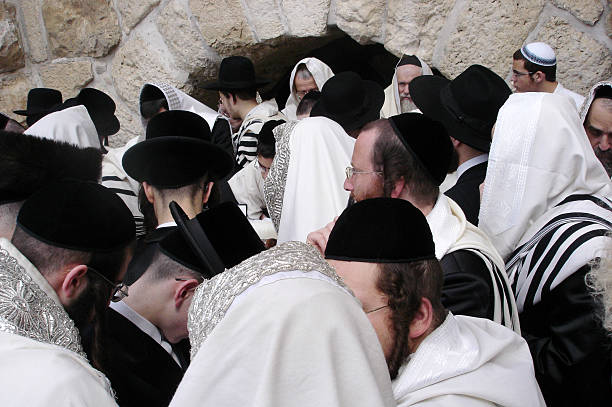
Just as he was speaking, Judas, one of the Twelve, appeared. With him was a crowd armed with swords and clubs, sent from the chief priests, the teachers of the law, and the elders…They took Jesus to the high priest, and all the chief priests, elders and teachers of the law came together (Mark 14:43,53).
At the time of the gospels, the Lord Jesus confronted a
powerful collection of adversaries from the higher classes of Jewish society.
Although under Roman occupation, Augustus Caesar followed by Tiberius, permitted a degree of freedom to subjugated nations as long as peace was maintained and the currency flow of Rome’s onerous tax burden was uninterrupted.
Israel posed a complex tangle of religion influencing
law, language and culture like no other conquered state.
Rome’s presence was heavy – and at times brutally crushing – but for the most part a degree of autonomy for civil and religious matters was granted to the Jews.
And that gave rise to the Jewish elite: those with power – religious and therefore, political – and the opportunity to advance their own agenda, all the while consolidating their personal influence and wealth.
Because the Lord Jesus was seen as a threat to their
control, He was quickly on their radar.
The Jewish elite sought to minimize the attention and esteem, following and worship that was being accorded Jesus, in part, because it rivaled their own. Their opposition to the long-awaited Messiah, they argued – in one of history’s most dramatic twists of irony – comprised the necessary checks and balances of cultural and religious Judaism.
There were exceptions among this class – those who recognized Jesus for who He was – including Nicodemus and Joseph of Arimathea; but for the most part the Jewish elite evolved from passively dismissive to actively rejecting their long-awaited Messiah, aggressively, angrily plotting His arrest, torture and crucifixion.
So, who were the Jewish elite?
The High Priest: under the Law of Moses, the supreme human appointment in Israel was the High Priest, a direct male descendant of Aaron. There were 84 High Priests in the 15 centuries of all of Hebrew history as each served from his father’s death until his own, whereupon his eldest son would take up the commission.
The priesthood: were
those who served at the Temple and were other direct descendants of Aaron. At
the time of the Lord Jesus, 15 centuries later, it is estimated that approx.
7200 male priests served the nation. (Some historical estimates are higher.)
Chief priests: the
High Priest appointed approx. 200 high-ranking individuals, again of the priestly
families.
Scribes/ teachers of law:
as experts in the law of Moses, these men exerted significant influence in religious
and civil matters.
The Sanhedrin: the Jewish
ruling council was granted civil jurisdiction by Rome. This de facto supreme court – but subject to the authority of Roman designates (Pontius Pilate, King Herod and later his sons) – was composed of 70 members plus the High Priest.
Elders: aged,
wise and experienced men who held cultural, political, or religious power and
prestige in Israel, often at the local level of village, town or city; theirs
was a consultative influence but without formal authority. Some members of the Sanhedrin
were recognized as elders.
In addition, the culture of 1st century Israel was impacted by various parties with religious or political agendas – and usually both.
Herodians: little is
known of this party; however they appear to be Hellenistic Jews born or with
family roots outside of the Holy Land. Principally, they were sympathetic to the
family of Herod and his ruling sons.
Sadducees: held the
majority position on the Sanhedrin and were religiously liberal, denying most
of the Old Testament except the Torah (the first 5 books, the books of Moses).
For the most part, the Sadducees denied much of the supernatural and rejected
the concept of afterlife.
Pharisees: as the religious conservatives, the Pharisees were very focussed on their own piety, watching diligently for the coming Messiah and fasting twice weekly in addition to being meticulous in their observance of the 613 components of the Law of Moses. However, they became the greatest opponents of the Lord Jesus and He criticized them for their hypocrisy, their inability to recognize who He was in the face of a virtual avalanche of evidence, and their habit of ruthlessly imposing subjective and overly legalistic interpretation of God’s Law on others. The Pharisees had a minority position on the Sanhedrin.
Takeaway: With few exceptions, the Jewish elite acted in concert to subvert the ministry of the Lord Jesus, obstinately refusing to acknowledge that Jesus was God’s definitive, conclusive and ultimate self-revelation.
He replied, "Isaiah was right when he prophesied about you hypocrites; as it is written: "‘These people honour me with their lips, but their hearts are far from me (Mark 7:6).
~ image
from istockphoto.com